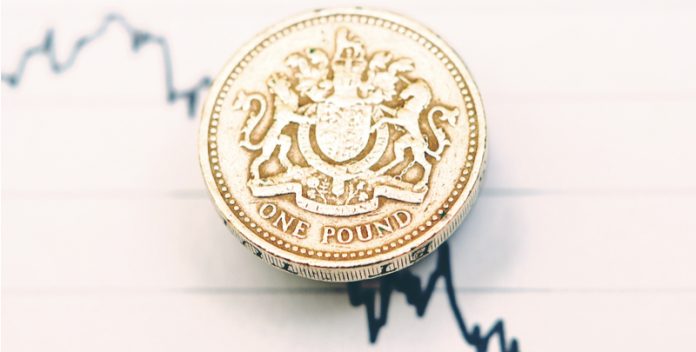Political and economic concerns weighed on the pound on Monday. As a result, the pound-dollar exchange rate fell to $1.2880, a level the pound has not seen since the end of June.
| What do these figures mean? |
|---|
| When measuring the value of a pair of currencies, one set equals 1 unit and the other shows the current equivalent. As the market moves, the amount will vary from minute to minute. For example, it could be written: 1 GBP = 1.28934 USD Here, £1 is equivalent to approximately $1.29. This specifically measures the pound’s worth against the dollar. If the U.S. dollar amount increases in this pairing, it’s positive for the pound. Or, if you were looking at it the other way around: 1 USD = 0.77786 GBP In this example, $1 is equivalent to approximately £0.78. This measures the U.S. dollar’s worth versus the British pound. If the sterling number gets larger, it’s good news for the dollar. |
Whilst economic data has been in short supply for the pound at the start of the week, things promise to heat up as the week continues. UK wage data on Wednesday will be of particular interest, as it gives an insight whether households are set to suffer further with rising inflation and slowing wage growth.
In the meantime UK central bank rhetoric could drive price action. Today sees two BoE officials hitting the wires, Haldane and Broadbent. Recent rhetoric from the BoE has been pointing towards a tighter monetary policy for the UK, with the possibility increasing of interest rates being hiked, maybe even before the end of the year. Yet last week’s UK economic data was especially weak, which raises the question as to how the central bank can even consider raising rates.
Of the speakers tomorrow, Haldane is already known to be supportive of an interest rate increase before the end of the year. Broadbent is more conservative, he has not voted for a rate rise in the 6 years that he’s been on the policy committee. Should he join the other BoE members by talking in favour of an increase then the pound could regain lost ground. This is because when interest rate expectations increase so does the currency.
| Why do raised interest rates boost a currency’s value? |
|---|
| Interest rates are key to understanding exchange rate movements. Those who have large sums of money to invest want the highest return on their investments. Higher interest rate environments tend to offer higher yields. So, if the interest rate or at least the interest rate expectation of a country is relatively higher compared to another, then it attracts more foreign capital investment. Large corporations and investors need local currency to invest. More local currency used then boosts the demand of that currency, pushing the value higher. |
Dollar adds to Friday’s rally
The dollar continues to build on gains from Friday after a stronger than expected U.S. jobs report. The next big event for the dollar will be Federal Reserve Chair Janet Yellen’s appearance before Congress on Wednesday. There is no obvious reason as to why she may move away from the current optimistic guidance, especially after Friday’s numbers and the upward revision to May’s jobs data. If Yellen continues with her upbeat outlook of the U.S. economy then this could pave the way for further gains in the dollar.
|
This article was initially published on TransferWise.com from the same author. The content at Currency Live is the sole opinion of the authors and in no way reflects the views of TransferWise Inc. |





